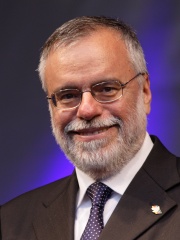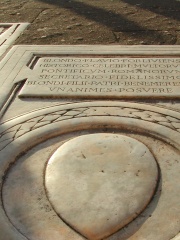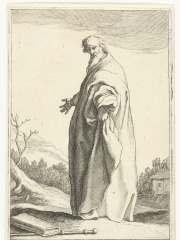
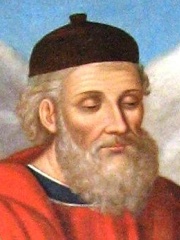

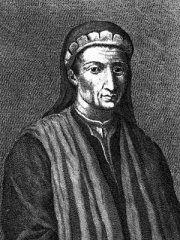
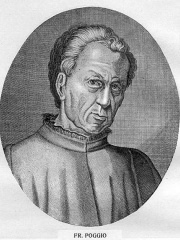
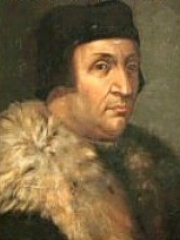

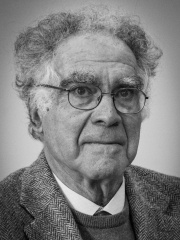
The Most Famous
HISTORIANS from Italy
This page contains a list of the greatest Italian Historians. The pantheon dataset contains 561 Historians, 27 of which were born in Italy. This makes Italy the birth place of the 6th most number of Historians behind United States, and Türkiye.
Top 10
The following people are considered by Pantheon to be the top 10 most legendary Italian Historians of all time. This list of famous Italian Historians is sorted by HPI (Historical Popularity Index), a metric that aggregates information on a biography's online popularity. Visit the rankings page to view the entire list of Italian Historians.

1. Livy (59 BC - 17)
With an HPI of 81.96, Livy is the most famous Italian Historian. His biography has been translated into 87 different languages on wikipedia.
Titus Livius (Latin: [ˈtɪtʊs ˈliːwiʊs]; 59 BC – AD 17), known in English as Livy ( LIV-ee), was a Roman historian. He wrote a monumental history of Rome and the Roman people, titled Ab Urbe Condita, ''From the Founding of the City'', covering the period from the earliest legends of Rome before the traditional founding in 753 BC through the reign of Augustus in Livy's own lifetime. He was on good terms with members of the Julio-Claudian dynasty and was a friend of Augustus. Livy encouraged Augustus’s young grandnephew, the future emperor Claudius, to take up the writing of history.

2. Diodorus Siculus (90 BC - 30 BC)
With an HPI of 79.20, Diodorus Siculus is the 2nd most famous Italian Historian. His biography has been translated into 72 different languages.
Diodorus Siculus or Diodorus of Sicily (Ancient Greek: Διόδωρος, romanized: Diódōros; fl. 1st century BC) was an ancient Greek historian from Sicily. He is known for writing the monumental universal history Bibliotheca historica, in forty books, fifteen of which survive intact, between 60 and 30 BC. The history is arranged in three parts. The first covers mythic history up to the destruction of Troy, arranged geographically, describing regions around the world from Egypt, India and Arabia to Europe. The second covers the time from the Trojan War to the death of Alexander the Great. The third covers the period to about 60 BC. Bibliotheca, meaning 'library', acknowledges that he was drawing on the work of many other authors.

3. Suetonius (70 - 126)
With an HPI of 77.79, Suetonius is the 3rd most famous Italian Historian. His biography has been translated into 70 different languages.
Gaius Suetonius Tranquillus (Latin: [ˈɡaːiʊs sweːˈtoːniʊs traŋˈkᶣɪlːʊs]), commonly referred to as Suetonius ( swih-TOH-nee-əs; c. AD 69 – after AD 122), was a Roman historian who wrote during the early Imperial era of the Roman Empire. His most important surviving work is De vita Caesarum, commonly known in English as The Twelve Caesars, a set of biographies of 12 successive Roman rulers from Julius Caesar to Domitian. Other works by Suetonius concerned the daily life of Rome, politics, oratory, and the lives of famous writers, including poets, historians, and grammarians. A few of these books have partially survived, but many have been lost.

4. Leonardo Bruni (1370 - 1444)
With an HPI of 72.96, Leonardo Bruni is the 4th most famous Italian Historian. His biography has been translated into 44 different languages.
Leonardo Bruni or Leonardo Aretino (c. 1370 – 9 March 1444) was an Italian humanist, historian and statesman, often recognized as the most important humanist historian of the early Renaissance. He has been called the first modern historian. He was the earliest person to write using the three-period view of history: Antiquity, Middle Ages, and Modern. The dates Bruni used to define the periods are not exactly what modern historians use today, but he laid the conceptual groundwork for a tripartite division of history.
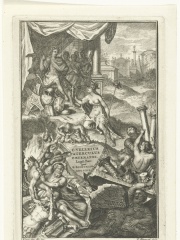
5. Marcus Velleius Paterculus (19 BC - 31)
With an HPI of 72.46, Marcus Velleius Paterculus is the 5th most famous Italian Historian. His biography has been translated into 39 different languages.
Marcus Velleius Paterculus (; c. 19 BC – c. AD 31) was a Roman historian, soldier and senator. His Roman history, written in a highly rhetorical style, covered the period from the end of the Trojan War to AD 30, but is most useful for the period from the death of Caesar in 44 BC to the death of Augustus in AD 14.

6. Poggio Bracciolini (1380 - 1459)
With an HPI of 71.22, Poggio Bracciolini is the 6th most famous Italian Historian. His biography has been translated into 37 different languages.
Gian Francesco Poggio Bracciolini (Italian: [dʒaɱ franˈtʃesko ˈpɔddʒo brattʃoˈliːni]; 11 February 1380 – 30 October 1459), usually referred to simply as Poggio Bracciolini, was an Italian scholar and an early Renaissance humanist. He is noted for rediscovering and recovering many classical Latin manuscripts, mostly decaying and forgotten in German, Swiss, and French monastic libraries. His most celebrated finds are De rerum natura, the only surviving work by Lucretius, De architectura by Vitruvius, lost orations by Cicero such as Pro Sexto Roscio, Quintilian's Institutio Oratoria, Statius' Silvae, Ammianus Marcellinus' Res Gestae (Rerum gestarum Libri XXXI), and Silius Italicus's Punica, as well as works by several minor authors such as Frontinus' De aquaeductu, Nonius Marcellus, Probus, Flavius Caper, and Eutyches.

7. Francesco Guicciardini (1483 - 1540)
With an HPI of 70.74, Francesco Guicciardini is the 7th most famous Italian Historian. His biography has been translated into 40 different languages.
Francesco Guicciardini (Italian: [franˈtʃesko ɡwittʃarˈdiːni]; 6 March 1483 – 22 May 1540) was an Italian historian and statesman. A friend and critic of Niccolò Machiavelli, he is considered one of the major political writers of the Italian Renaissance. In his masterpiece, The History of Italy, Guicciardini paved the way for a new style in historiography with his use of government sources to support arguments and the realistic analysis of the people and events of his time.

8. Euhemerus (330 BC - 250 BC)
With an HPI of 70.70, Euhemerus is the 8th most famous Italian Historian. His biography has been translated into 33 different languages.
Euhemerus (; also spelled Euemeros or Evemerus; Ancient Greek: Εὐήμερος Euhēmeros, "happy; prosperous"; late fourth century BC) was a Greek mythographer at the court of Cassander, the king of Macedon. Euhemerus' birthplace is disputed, with Messina in Sicily as the most probable location, while others suggest Chios or Tegea. The philosophy attributed to and named for Euhemerus, euhemerism, holds that many mythological tales can be attributed to historical persons and events, the accounts of which have become altered and exaggerated over time. Euhemerus's work combined elements of fiction and political utopianism. Early Christian writers, such as Lactantius, used Euhemerus's belief that the ancient gods were originally human to confirm their inferiority regarding the Christian God.

9. Carlo Ginzburg (b. 1939)
With an HPI of 67.98, Carlo Ginzburg is the 9th most famous Italian Historian. His biography has been translated into 28 different languages.
Carlo Ginzburg (Italian: [ˈkarlo ˈɡintsburɡ]; born 15 April 1939) is an Italian historian and a proponent of the field of microhistory. He is best known for Il formaggio e i vermi (1976, English title: The Cheese and the Worms), which examined the beliefs of an Italian heretic, Menocchio, from Montereale Valcellina. In 1966, he published The Night Battles, an examination of the benandanti visionary folk tradition found in sixteenth- and seventeenth-century Friuli in northeastern Italy. He returned to looking at the visionary traditions of early modern Europe for his 1989 book Ecstasies: Deciphering the Witches' Sabbath.
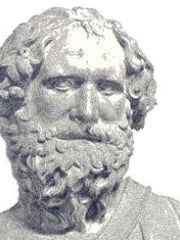
10. Timaeus (350 BC - 260 BC)
With an HPI of 67.68, Timaeus is the 10th most famous Italian Historian. His biography has been translated into 29 different languages.
Timaeus of Tauromenium (Ancient Greek: Τιμαῖος; born 356 or 350 BC; died c. 260 BC) was an ancient Greek historian. He was widely regarded by ancient authors as the most influential historian between the time of Ephorus (4th century BC) and Polybius (2nd century BC). In the words of scholar Lionel I. C. Pearson, Timaeus "maintained his position as the standard authority on the history of the Greek West for nearly five centuries."
People
Pantheon has 27 people classified as Italian historians born between 450 BC and 1959. Of these 27, 3 (11.11%) of them are still alive today. The most famous living Italian historians include Carlo Ginzburg, Andrea Riccardi, and Alessandro Barbero. The most famous deceased Italian historians include Livy, Diodorus Siculus, and Suetonius.
Living Italian Historians
Go to all RankingsCarlo Ginzburg
1939 - Present
HPI: 67.98
Andrea Riccardi
1950 - Present
HPI: 58.10
Alessandro Barbero
1959 - Present
HPI: 52.33
Deceased Italian Historians
Go to all RankingsLivy
59 BC - 17
HPI: 81.96
Diodorus Siculus
90 BC - 30 BC
HPI: 79.20
Suetonius
70 - 126
HPI: 77.79
Leonardo Bruni
1370 - 1444
HPI: 72.96
Marcus Velleius Paterculus
19 BC - 31
HPI: 72.46
Poggio Bracciolini
1380 - 1459
HPI: 71.22
Francesco Guicciardini
1483 - 1540
HPI: 70.74
Euhemerus
330 BC - 250 BC
HPI: 70.70
Timaeus
350 BC - 260 BC
HPI: 67.68
Flavio Biondo
1388 - 1463
HPI: 66.35
Tyrannius Rufinus
345 - 411
HPI: 66.16
Andrea Alciato
1492 - 1550
HPI: 66.10

